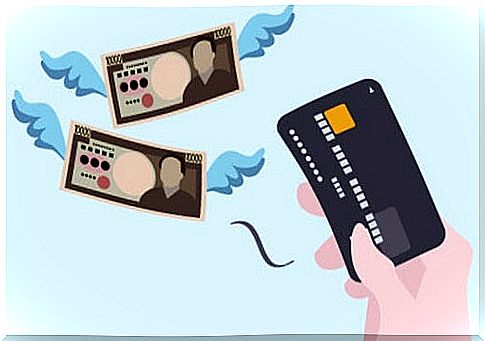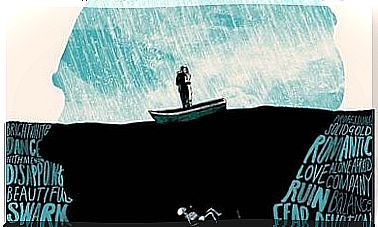The Red Balance Syndrome

Red balance syndrome has to do with the inability to save money for future expenses. It is as if the bills are burning. As soon as the person has some money, they begin to think about what to spend it on. It is as if you need to get rid of your income as soon as possible to be at zero.
It is called red balance syndrome precisely because from the outside it can give the feeling that your purpose is to always live on the edge. In this case, we are talking about a chronic inability to save. Those who suffer from this syndrome cannot bear the idea of having money saved and that is why they spend it many times on unnecessary or irrelevant things.
On the other hand, experts say that saving is a critical factor to improve the quality of life, especially for those who do not have a high income. In other words, when you have little income, saving in terms of quality of life makes all the difference. It seems contradictory, but it is true. Saving, for what it means, is a form of control over our lives, especially in the future. The red balance syndrome results in the opposite.
Money and the red balance syndrome
A healthy relationship with money is one in which there is a balance between what you get, invest, and spend. This also includes clarity around spending priorities and a vision of the medium and long-term financial health. When all these variables are combined in a reasonable way, one can speak of a healthy conscience in relation to money.
In the red balance syndrome, on the other hand, there is a confusing perspective. The traits or symptoms that define this condition are, among others, the following :
- Gift purchases are made frequently. Self-gifts to reward yourself for something, or gifts for others for no specific reason.
- You have the feeling that there are many debts, but you choose not to think about the issue so as not to worry.
- It is often thought that it might be better not to spend so much money, but nothing is done to change this.
- Before any extra income, the first idea that comes to mind is to spend it.
- You have the idea that the money never comes to cover everything that the person wants. The person has the feeling that he will never stop accumulating debt.
- Before buying there is a certain concern and after doing it a certain guilt, but it is preferred not to think about it.
When more than two of these traits are present, we can speak of the red balance syndrome. In this case, there is a somewhat neurotic relationship with money. Perhaps this has become a kind of veil that covers up other problems.

The future perspective
The dilemma is whether to consume today or save for tomorrow. The conscience of saving only exists in those who consider a future perspective. The accumulation of money through savings seeks to gather resources for future projects or have support against possible eventualities that put finances at risk. It involves causing frustration today (not spending the money) based on a future good (the execution of larger projects or the minimization of risk).
For those with red balance syndrome, the future is a vague matter over which they do not believe they can have control. Or they don’t want to have it. Thinking about tomorrow is also thinking about a life project and not everyone wants or can do this. Ultimately, this throws us a strong question whose answer has important consequences .

Accumulating money through savings is also a way to “settle.” It means putting down roots, choosing a reference point to grow and evolve. It involves a desire to build that not everyone has or wants to have. The problem is that whether we like it or not, our economic actions condition the resources that we will have in the future. Even if we don’t want to see that tomorrow, it’s still there.
The red balance syndrome, or that handling of finances without focus or perspective, is also a form of escape. Perhaps we live in a present in which we feel deprived of moments of happiness and we make up for it with the small and fleeting pleasures that shopping brings. Or we may simply have no idea where our lives are going, and spending the money helps to mask that concern. Be that as it may, this type of behavior has consequences and is usually paid for with anxiety, debt and, therefore, less control over our lives.









